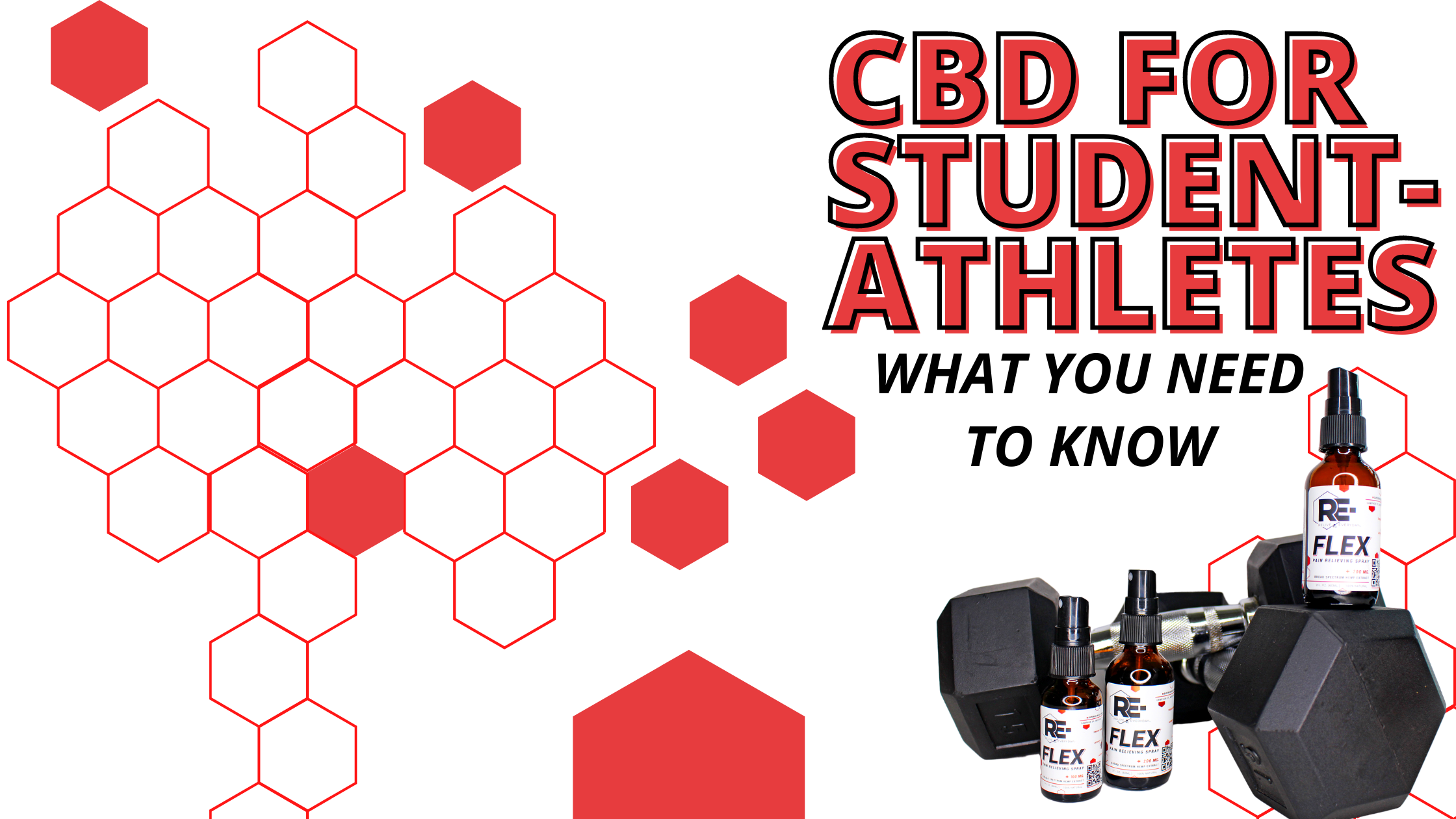
CBD For Student-Athletes: What You Need to Know
NFL superstars like former New England Patriot Rob “Gronk” Gronkowski and retired New York Giant Tiki Barber are investing in and promoting CBD brands. High-profile endorsements like these and increased evidence about the benefits of CBD are moving it closer to be an acceptable substance for athletes. But, the US Anti-Doping Association (USADA) still issues warnings for athletes of all ages who are playing in leagues that drug test for THC.
Gronkowski retired from the NFL at age 30 after a successful, yet an injury-plagued career. In an emotional press conference, he advocated for pro sports organizations like the NFL, NHL, and NBA to loosen restrictions on using CBD. The NFL and it’s player’s union formed a committee to consider CBD. BIG3, a professional 3-on-3 basketball league featuring former NBA players, was the first U.S. pro sports league to allow CBD for pain management and recovery. The league said it prefers CBD to addictive opioids and pain-relief drugs for its athletes. The focus of the MLB’s drug policy remains on performance-enhancing drugs, not cannabis. But, NASCAR currently prohibits CBD, citing that it can result in a positive test for THC.
Given that CBD is still a banned substance for many professional athletes, what are the implications for younger athletes?
How CBD Can Help Athletes
CBD is a phytocannabinoid naturally produced by the hemp plant. There are over 100 cannabinoids found within the hemp plant, including CBD. Cannabinoids work with a system in our body called the endocannabinoid system, or the ECS. The endocannabinoid system is composed of our own internal cannabinoids and receptors. The primary receptors in the ECS are found in the brain, nervous system, and immune system. When stimulated, this system supports balance, stability, and overall homeostasis in the body.
CBD has been shown to relieve pain, reduce inflammation, and reduce athletes’ reliance on NSAIDS for exercise-related pain. CBD’s attributes fit right in with what athletes are looking for when it comes to performance and recovery. CBD is:
· Anti-inflammatory
· Neuroprotective
· Pain reliever
· Antidepressant
· Anti-anxiety
· Antioxidant
· Anti-fungal
· Helps with insomnia
CBD as an Alternative to Pain Relievers
Athletes are turning to CBD as an alternative to other pain relievers such as NSAIDs and highly addictive opioids. Long-term use of NSAIDs can lead to liver damage, inflammatory digestive conditions, and have also been associated with increased risk of heart attack and strokes. The USADA is pushing for more opioids to be added to the World Anti-Doping Agency’s list of banned substances due to the health risks and addictive qualities.
Studies support using CBD as an alternative to traditional pain relievers. In 2017, the National Academies of Sciences, Engineering, and Medicine found there is conclusive evidence to support the use of cannabis or cannabinoids for treating chronic pain in adults. A 2008 study found CBD was effective in pain management with few side effects and without the withdrawal symptoms of opioid pain medications.
The Rules on CBD
The NCAA continues to lessen the penalties for athletes who test positive for marijuana. While CBD not banned, it is still not technically permissible. The NCAA Sport Science Institute says they need more evidence on the benefits of CBD. The group is also concerned that athletes who take CBD risk testing positive for THC. Prolonged use of CBD products that contain trace amounts of THC can be stored in the body and build up over time resulting in a positive for a drug test of THC. CBD products from hemp should not contain more than 0.3 percent THC, but a study by the Journal of American Medicine found not all brands contain the same amounts promised on their labels. The NCAA does seem to be taking cues from the World Anti-Doping Agency (WADA) who removed CBD from the list of banned substances but still restricts THC.
This is where THC-free products come into play. The THC is removed, but all the benefits of CBD remain. Typically, a CO2 extraction process is used to obtain the crude oil and then a second HPLC extraction method is used to remove the THC.
You can find THC-free products in a variety of types. Look for tinctures, capsules, gummies, topicals, sprays, and other body products. You might need to experiment with type and dosage to discover what works. Always start with a low-dose, even of THC-free, CBD and try it for a couple of weeks. Then, make adjustments. Talk to your doctor before adding CBD to your health regime, especially if you are taking other medications. Look for quality products. When you’re shopping, look for products that are lab-tested and have a COA or Certificate of Analysis. This means they have been independently verified to contain the ingredients they say they contain. Also, look for Non-GMO and 100% natural.
Stay tuned. Sports experts predict state and national sports agencies like the NCAA will continue to reduce restrictions on CBD and medical marijuana for pain relief and recovery in the next few years.